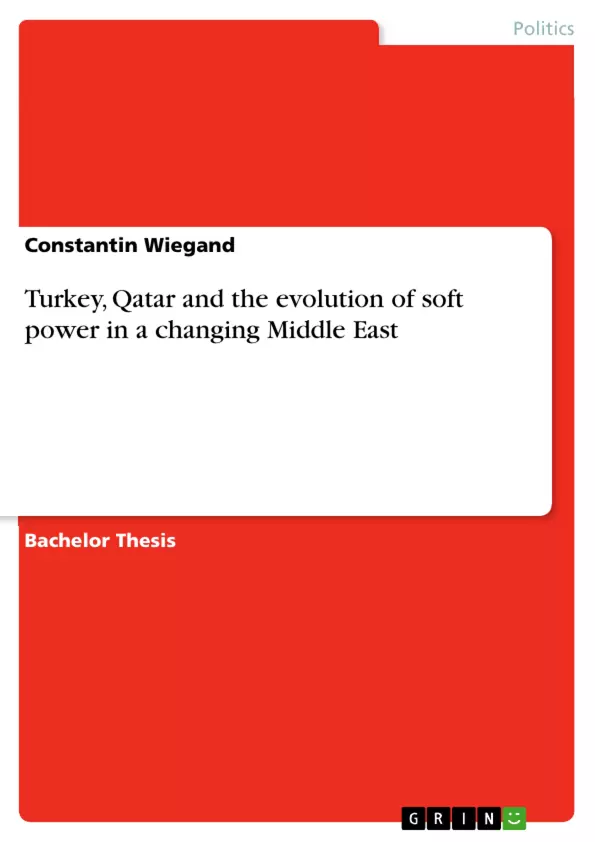Conventionally, politicians and diplomats defined power as the control over a territory and its population, the possession of natural resources, economic size, military force, and internal political stability. Today, this emphasis on using military force to exert control over a territory, its population and its natural resources which marked earlier eras is losing significance. Factors such as technology, education and economic growth are becoming more important in the international struggle for power. As the great powers of today are less able to use their traditional power resources to achieve their goals, private actors and small states have become more powerful. Joseph Nye identified five trends which contributed to this diffusion of power: economic interdependence, transnational actors, nationalism in weak states, the spread of technology and changing political issues. He argued that these trends suggest a second, more attractive way of exercising power than traditional means, and called this aspect of power “co-optive” or “soft” power.
Since the end of the Cold War, the concept of soft power has been used extensively in discussions about US foreign policy and has more recently also been used to describe China's foreign policy. But far less attention has been given to how this term can be used in other cultural contexts to describe intra-regional politics, such as in the Middle East. Turkey and Qatar are two countries that try to navigate through this dangerous region in a different way. But what they have in common is that they both managed to improve their reputation and increase their visibility in the past decade. This has translated this into increased policy impact on the regional and global stage. Is the concept of soft power useful to explain the increased power of attraction that emanates from these countries? (...)
This bachelor thesis will use the concept of soft power to explain Turkish and Qatari foreign policies over the past decade, as well as the most recent developments. It also aims to elucidate why both of the countries have built up their soft power resources, and does so by focusing on the concept of “human security”.
Table of Contents
- Introduction
- Soft Power Defined
- Recent History
- Sources of Soft Power
- Soft Power for Human Security?
- The Situation Today
Objectives and Key Themes
This dissertation explores the concept of soft power as it relates to the foreign policies of Turkey and Qatar over the past decade, specifically focusing on their efforts to enhance security through the development of soft power resources. The research aims to understand why both countries have invested in soft power and how it benefits their "human security" objectives.
- The definition and application of soft power in international relations, particularly in the Middle East.
- Analysis of the soft power resources utilized by Turkey and Qatar, including cultural influence, economic power, political values, and foreign policy strategies.
- Examination of the relationship between soft power and "human security" within the context of Turkey and Qatar's foreign policy goals.
- Assessment of the current situation in the Middle East and its impact on Turkey and Qatar's soft power strategies.
- Evaluation of the potential benefits and challenges associated with Turkey and Qatar's soft power approaches in the region.
Chapter Summaries
The dissertation begins by defining the concept of soft power, contrasting it with "hard power" and identifying the primary soft power resources: culture, political values, and foreign policies. The following chapters then focus on Turkey and Qatar, providing background information on their respective contexts and examining their key sources of soft power. The dissertation explores the concept of "human security" in relation to soft power, considering how Turkey and Qatar benefit from soft power growth. The final chapter, which is not included in this preview, analyzes the current situation in the Middle East and its implications for Turkey and Qatar's soft power strategies.
Keywords
This work explores key concepts related to soft power, human security, foreign policy, and the political dynamics of the Middle East. The primary terms and concepts investigated include: soft power, hard power, cultural diplomacy, economic influence, political values, human security, Turkey, Qatar, Middle East, regional politics, foreign policy objectives, and strategic maneuvering.
Frequently Asked Questions
What is the main focus of this dissertation?
The dissertation explores how Turkey and Qatar use soft power strategies to influence regional and global politics, focusing on the concept of human security.
How is "soft power" defined in the text?
Soft power, or "co-optive" power, is the ability to exercise influence through attraction (culture, political values, foreign policy) rather than traditional military or economic force.
Why are small states like Qatar becoming more powerful?
According to Joseph Nye, trends like economic interdependence and the spread of technology allow smaller states to exert influence beyond their traditional resources.
What is the role of "human security" in Turkish and Qatari foreign policy?
The research aims to show that both countries invest in soft power resources to achieve their human security objectives and improve their international reputation.
What are the primary sources of soft power for these countries?
Key sources include cultural influence, economic power, political values, and strategic foreign policy maneuvering in the Middle East.
- Citation du texte
- Constantin Wiegand (Auteur), 2013, Turkey, Qatar and the evolution of soft power in a changing Middle East, Munich, GRIN Verlag, https://www.grin.com/document/283838



